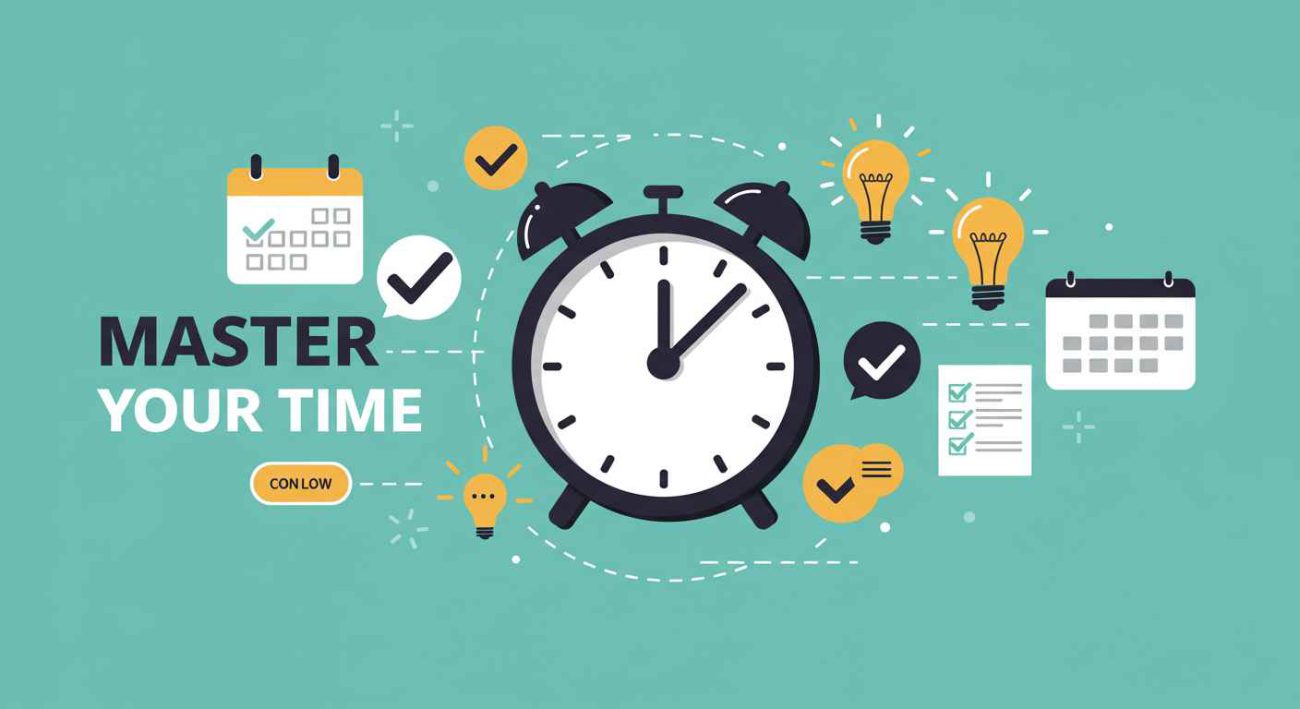You’ve dedicated countless hours to a new initiative, strategized every facet, only to see it languish in a drawer, or maybe you’ve stepped into a promotion conversation you felt was in the bag, only to watch it go to someone else. Instantly, the inspiration that once pulled you out of bed in the morning starts to dim. If that resonates, you’re in good company. Nearly every professional encounter setbacks—a departmental reorganization, a product that misses the mark, or a discipline of no replies to a job application—and each confrontation tempts us to revisit the story we tell ourselves. The encouraging counter-narrative is that defeat does not have the final word. When met with perception and intention, it can catalyse a renaissance of resolve and redraw the contours of your next chapter.
Why is maintaining motivation crucial right now? Because careers rarely unfold as cleanly plotted trajectories; more often, they resemble meandering paths dotted with unforeseen drops. Moving through those drops with grit enables quicker rebounds and fortifies the well of inner fortitude tapped for later success. In what follows, I will share actionable methods for sustaining motivation, underscoring each with concrete stories in which others converted setbacks into stepping stones. Whether you currently sit at a low point on the path or are bracing for the next dip, these lessons are meant for immediate daily adaptation. Ready to reignite that inner fire? Let’s proceed.
First and foremost, grant yourself the right to experience the hurt. The urge to dismiss disappointment with a breezy “I’m okay” is all but universal, yet stuffing those feelings now often pays out in exhaustion later. Instead, reserve a deliberate span—perhaps a week—during which to sit with the pain: you might write daily, confide in a trusted colleague, or engage a therapist, should that feel right. This practice is not self-indulgent; it is precision housekeeping for the psyche, clearing away the mental haze that otherwise clouds future judgment and capacities for action. By consciously processing, you position yourself to advance with a steadier, more purpose-filled stride.
When you acknowledge your feelings rather than ignore them, you defuse the simmering potential for resentment. It is as though you realign your internal compass, restoring clarity. Research shows that early failures early in academic careers typically drive a subsequent, sharper rise in effort, raising the odds of significant future achievements by more than 6 percent. The upshot is a measurable decrease in stress and a restored sense of agency, both of which make the next challenge more approachable. Begin with this uncomplicated exercise: identify the emotions you are clutching and formulate a plan to let them go.
Position the Setback as Fertile Soil for Growth
Consider that the recent rejection might not signify a dead end but rather a necessary detour toward a more fitting opportunity. When you reframe, you transform failure into a lesson. Step away from the emotional swirl and conduct a structured review. Solicit candid feedback from mentors or peers, and isolate one or two actionable insights, such as a skill that needs strengthening or a misalignment of your ambitions with the role. Leaders such as Steve Jobs routinely converted the painful experience of dismissal into a launchpad for greater achievement by treating it as an invitation to innovate.
This mindset isn’t mere encouragement; it steadies your gaze on growth instead of guilt. I’ll keep my sentences brief so they stick. When a setback arrives, list three gains you can trace back to it, like fresh determination or sharpened strategies. Repeating this habit gradually shrinks worry and expands courage, transforming a brewing storm into a breeze you can steer.
Cultivate a Supportive Network
You are not required to navigate this alone; others can lend you wind at the back. Contact advisors, colleagues, or digital communities for counsel and cheer. A brief coffee conversation or a direct LinkedIn note can inject fresh insight and affirm that everyone encounters turbulence. Recently, I read a thread in a professional forum where members recounted how conversations with family helped them recast obstacles as momentary bumps.
The return is tangible. A network delivers both psychological lift and handy tips, whether a lead on a vacancy or a recommendation for a course. It widens your field of vision beyond self-doubt, leading to steadier choices. Begin with one step: identify anyone in your circle who has weathered a similar storm. Schedule regular check-ins, and watch isolation recede, replaced by the steady rhythm of shared victories that keep your momentum alive.
Set Small, Achievable Goals
When energy to pursue a large goal fade, that very goal can seem impossible. Instead, divide it into small, specific actions. If you’re looking for work after a layoff, your plan could be to refine your resume today, then submit one application tomorrow. Each completed task is a small victory; together, they create a steady upward slope, a chain of connected successes.
Focusing on one discrete step at a time allows you to bypass the paralysis of wanting to do everything perfectly. The shorter the paragraph, the quicker you read—notice? Once a day, ask yourself what brief task, however minor, advanced you. Track your answers for a month, and you’ll see small pushes turn into measurable change, gradually replacing doubt with a renewed sense of purpose.
Invest in Personal and Professional Development
Free time following a setback is a chance to strengthen your skills. Enrol in a course offered online, attend a relevant workshop, or instead read the latest reports in your profession. Each of these moves patches a gap in what you know and, just as important, reinforces your feeling that you’re driving your own recovery. When you add a new capability—programming, giving presentations—surprises can follow, leading to roles you hadn’t considered.
The outcomes? Increased competence translates into higher job satisfaction and faster recoveries. There’s a unique energizing force in seeing yourself in constant motion rather than in a holding pattern. Translate this awareness into practice: Which new skill has been nudging at the back of your mind? Commit thirty minutes a day and watch enjoyment and efficiency fuse, repurposing a setback into the platform for the chapter ahead.
Cultivate an Optimistic Routine
Adopt the conviction that ability can be cultivated—it is your most reliable ally. Couple that belief with consistent rituals: exercise, balanced nutrition, periods of stillness. Direct your energy toward dimensions you can influence: mindset and preparation, rather than the cumulative noise of uncertainty.
Such practices dampen pressure and clarify judgment, spiralling into an ever-brighter feedback loop. Visualize the mind as a garden: pull invasive doubts, sow enduring hope. Invite a daily morning declaration: “I am unfolding and adaptable.” Daily repetition steadies’ motivation and hushes the inner critic, replacing it with a calm conviction that quietly influences every waking hour.
Practice Intelligent Persistence
Persistence devoid of the stubborn is flexibility sharpened by insight. Continue to apply, to converse, to refine your message in light of the signals you receive. Careers often revive after well-considered changes in course, so pivot thoughtfully. A practical hint: survey fields that orbit your current expertise; a familiar tool in a slightly different context often becomes a new point of leverage.
The net effect is decreased irritation and more appropriately matched opportunities. It fosters resilience, allowing you to face the next setback with confidence. Pose the question: What is one change I can implement today? Accepting an adjustment like this keeps momentum alive, turning what could be barriers into pathways toward deeper fulfillment.
Honor Every Step and the Minor Triumphs
Do not postpone acknowledgment for the grand finale—raise a glass to the modest victories along the route. Enjoy a cherished coffee after a particularly productive networking exchange? That is essential fuel for motivation. Documenting small advances in a dedicated journal affirms that you are indeed moving forward, even when the steps feel tiny.
Cultivating this practice elevates mood and sustains motivation over the long stretch, resulting in pursuits that are both joyful and effective. Imagine it as weaving vibrant threads into the fabric of accomplishment. Nestle the discipline into the schedule: each Friday, record three wins. Incrementally, this practice of positive reinforcement transforms staying driven into a seamless and gratifying experience.
As you reflect on today’s conversation, keep in mind that career detours are distinctive, much like fingerprints—successful responses for one may require calibration for another. The approaches we’ve examined—acknowledging feelings, savouring progress—underline a single, liberating principle: you alone govern the direction of your narrative. Each strategy has aided a diverse group of individuals in reclaiming momentum, illustrating that resilience is less about dodging the drop and more about moving gracefully within it. Select one practice, trial it over the next few days, and make it your own; you will likely notice that modest adjustments yield expansive new views. Trust your capacity—your forthcoming achievement is already on the next horizon.

